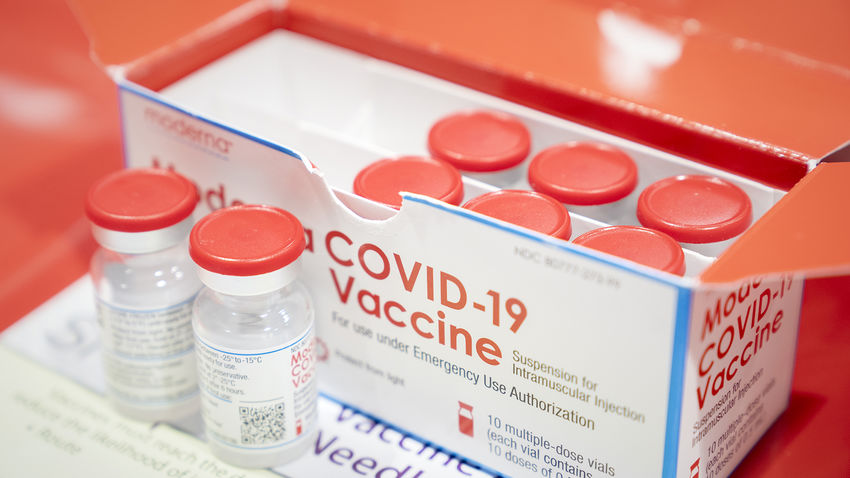
Given the national goal that 70 percent of the adult population receive at least one COVID-19 vaccine by July 4, understanding who is most likely to be hesitant—and why—is important in developing community vaccine programs, says Sarah Bauerle Bass, associate professor of social and behavioral sciences and director of the College of Public Health's Risk Communication Laboratory.
In a poll released May 17 by PBS NewsHour/NPR/Marist, 59 percent of U.S. adults surveyed said they have been vaccinated, and 24 percent said they do not plan to. A key to closing the gap is getting past broad stereotypes about hesitancy and creating programs designed to address the varied reasons people may delay or refuse to be vaccinated, Bass says. Newly published research led by Bass examines public attitudes toward vaccination not just by demographic factors such as age group, race and income level, but also issues such as individuals' satisfaction with their own health status and how much they pay attention to COVID-19 news.
“I think it confirms that understanding these more psychographic factors can be more important than just looking at demographics," Bass says. "Focusing on a factor such as race alone isn't the best approach. It's much more nuanced in the way you have to approach it." As part of Temple's RapidVax community inoculation program, Bass is leading the effort to survey diverse communities throughout Philadelphia, then develop specific informational messaging to address varied hesitancy issues.
In the study, published in Frontiers in Public Health, researchers surveyed people in New York, Miami and San Francisco. Thirteen percent indicated they would not be willing to be vaccinated at all (Miami was above that at 18.3 percent; San Francisco was less hesitant at 7.9). Vaccine avoiders were more likely to be Black or African American, younger (in the 18-29 age group), female, and have lower education and income levels. They also were more likely to ignore COVID-19 news and be less satisfied with their health and their access to healthcare. Variables such as political affiliation and religion were not found to be significant in the study.
The findings add to a growing base of understanding about vaccine hesitancy, where research prior to COVID-19 focused mostly on parents' willingness to have their children vaccinated. Some of the findings confirm and illuminate emerging themes in COVID vaccine hesitancy Across many surveys younger people have indicated they are less inclined to be vaccinated. "When you’re young, you feel you are invincible," Bass says. People who are dissatisfied with their health or healthcare access may have less trust for institutions providing vaccines. That may stem from previous experiences of discrimination of health services or expectations of care.
Bass adds that other recent research on attitudes toward COVID vaccines, such as that from the Kaiser Family Foundation, has indicated that much of the hesitancy among Black individuals may be more "wait and see" than absolute refusal, while the "definitely not" group skews more along ideological lines.
All this research on attitudes toward vaccines can help clinicians, social workers and community organizers effectively reach more people. “It's all trying to expand our understanding of who is hesitant and keep us from lumping people into demographic buckets,” Bass says. “It’s nuanced, and the more we understand, the faster we can get to those vaccination goals.”
